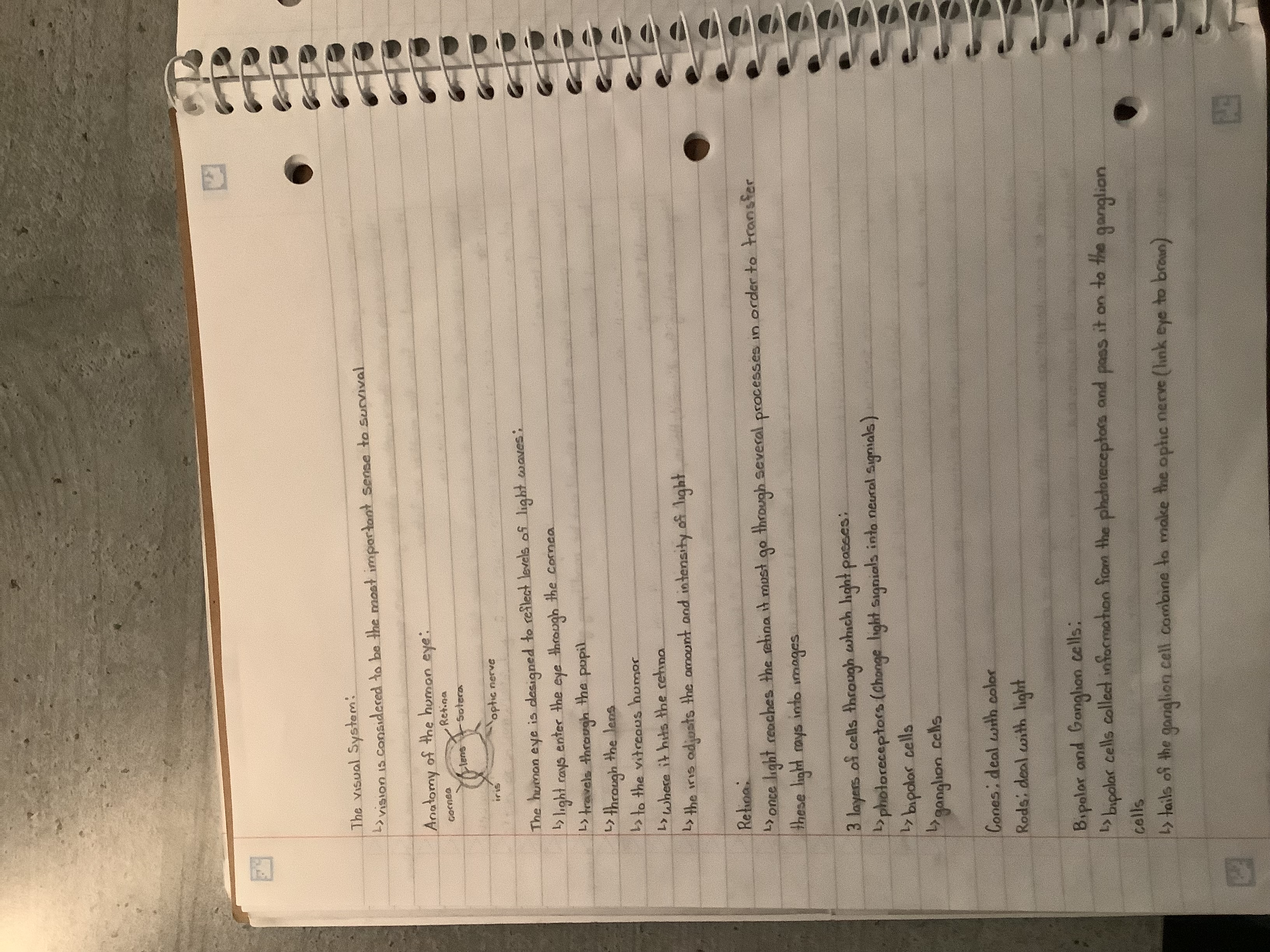What is the anatomy of the human eye and how does the visual system work?

Understand the Problem
The content provides an overview of the visual system, specifically detailing the anatomy of the human eye, the process of light perception, and the roles of various cells involved in vision. The question seeks to summarize or understand this information.
Answer
The eye processes light to create images, involving structures like the cornea, pupil, lens, and retina. Photoreceptors convert light to signals sent via the optic nerve to the brain.
The visual system is crucial for survival, with the eye capturing light through structures like the cornea, pupil, lens, vitreous humor, and retina. Photoreceptors in the retina convert light into signals passed through bipolar and ganglion cells, forming the optic nerve to convey data to the brain.
Answer for screen readers
The visual system is crucial for survival, with the eye capturing light through structures like the cornea, pupil, lens, vitreous humor, and retina. Photoreceptors in the retina convert light into signals passed through bipolar and ganglion cells, forming the optic nerve to convey data to the brain.
More Information
The human eye functions by capturing and interpreting light, using various parts to focus and transmit visual information to the brain for processing.
Tips
A common mistake is forgetting the role of different parts, like how the lens focuses light or how photoreceptors work. Remember that rods and cones have distinct functions.
Sources
- NEI - How Eyes Work - nei.nih.gov
- Cleveland Clinic - Eye Anatomy - my.clevelandclinic.org
- AAO - Parts of the Eye - aao.org
AI-generated content may contain errors. Please verify critical information